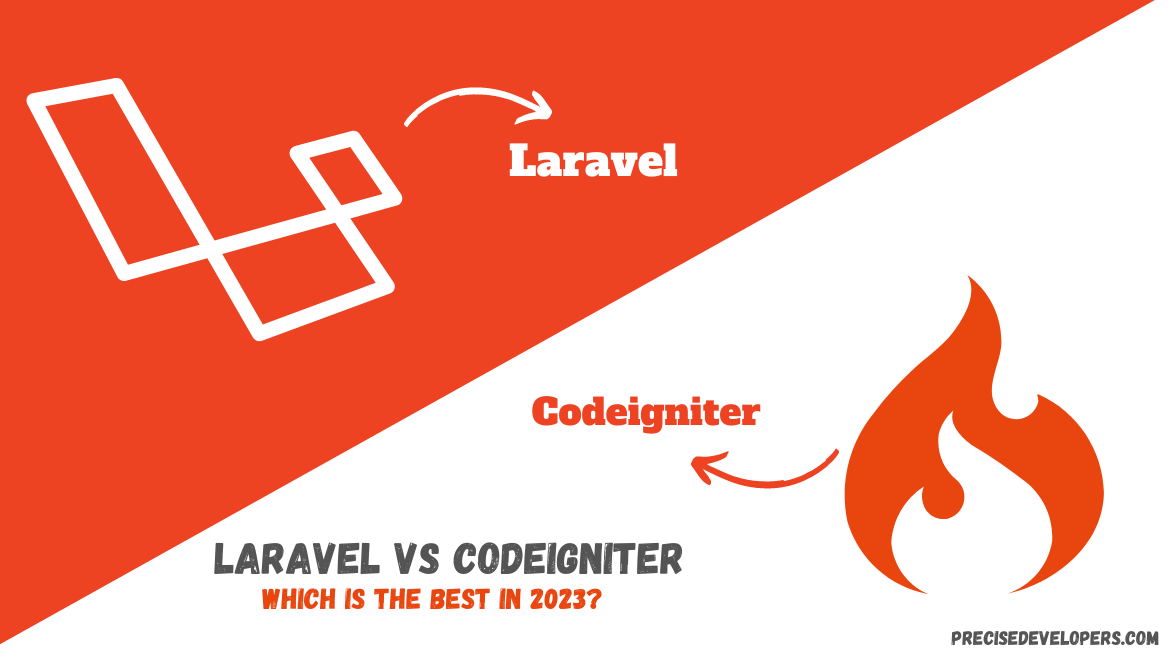If you’re a developer looking for a lightweight PHP framework that can help you build web applications quickly and efficiently, then CodeIgniter might be just what you need. In this blog post, we’ll explore what CodeIgniter is, why it’s considered one of the best lightweight PHP frameworks, and the benefits of using it for your web development projects. What is CodeIgniter? CodeIgniter is an open-source web application development framework for PHP. It is designed to make it easier for developers to build web applications by providing a set of libraries and tools that can help with common tasks, such as database access, form validation, and URL routing. CodeIgniter was first released in 2006 and has since become a popular choice for developers looking for a lightweight and easy-to-use PHP framework. Which is the best lightweight PHP framework? There are many PHP frameworks available, but CodeIgniter is widely considered one of the best lightweight options. Other popular lightweight PHP frameworks include Slim, Lumen, and Silex. Why is CodeIgniter lightweight? CodeIgniter is lightweight because it has a small footprint and minimal configuration requirements. It doesn’t require a complex setup process or extensive installation steps. The core CodeIgniter system only takes up a small amount of space and doesn’t require additional libraries or components to run. Is CodeIgniter a good framework? Yes, CodeIgniter is a good framework for web application development. It’s lightweight, easy to use, and has a clear and intuitive structure that makes it easy to understand and work with. CodeIgniter also has an active community of developers who contribute to the project, which means that it’s regularly updated and maintained. What are the features of CodeIgniter? CodeIgniter comes with a wide range of features that can help with web application development, including: What are the advantages of using CodeIgniter? There are several advantages to using CodeIgniter for web application development, including: What is better than CodeIgniter? There are several PHP frameworks that are similar to CodeIgniter and offer similar features and benefits. Some popular alternatives include Laravel, Symfony, and Yii. What is the architecture of CodeIgniter? CodeIgniter follows a Model-View-Controller (MVC) architecture, which separates the application logic into three interconnected components. The Model represents the data and database interactions, the View is responsible for the presentation layer, and the Controller handles user input and controls the flow of the application. How make CodeIgniter faster? There are several steps you can take to make CodeIgniter faster, including: In conclusion, CodeIgniter is a lightweight PHP framework with big benefits. Its simplicity, ease of use, and fast development time make it a popular choice for web application development. If you’re looking for a framework that can help you build web applications quickly and efficiently, then CodeIgniter might be the right choice for you. You may also like: We would appreciate it if you could share this post with your colleagues if you found it informative. We welcome your feedback and would be delighted to hear your opinions on our blog and social media posts, which can be found on various platforms, including Instagram, Facebook, LinkedIn, and Twitter.
As we enter the new year of 2023, developers and business owners alike will be looking for the best solutions for their web development needs. In this article, we’ll be taking a look at two popular frameworks – Laravel vs CodeIgniter – to help you make an informed decision about which one is best suited for your project. We’ll compare the features and benefits of each framework, as well as how they stack up against each other in terms of ease of use and scalability. Stay tuned to find out which framework comes out on top! Introduction to Laravel and Codeigniter Laravel and Codeigniter are two popular PHP frameworks. They both have their own pros and cons, so it can be hard to decide which one to use for your project. In this article, we’ll compare Laravel and Codeigniter so you can make an informed decision about which framework is right for you. Laravel is a newer framework than Codeigniter, but it has already gained a lot of popularity thanks to its clean code base and robust feature set. Laravel comes with a built-in ORM (object-relational mapping) system called Eloquent, making it easy to work with database data. It also has excellent documentation and a large community of developers who can help you if you get stuck. Codeigniter is an older framework, but it’s still widely used thanks to its lightweight footprint and simple learning curve. Codeigniter doesn’t have as many built-in features as Laravel, but it’s easy to extend with custom libraries and modules. It also has great performance out of the box, making it a good choice for projects that need to run quickly and smoothly. So, which is the best PHP framework? That depends on your needs. If you’re looking for a modern framework with lots of features, Laravel is a great choice. If you need something lightweight and fast, Codeigniter is worth considering. Ultimately, the best way to decide is by trying out both frameworks and seeing which one Pros and Cons of each framework : Laravel vs Codeigniter When it comes to choosing a PHP framework for web development, there are many options available. However, two of the most popular choices are Laravel and Codeigniter. So, which one is the best? Laravel: Pros: 👍 Cons: 👎 Codeigniter: Pros: 👍 Cons: 👎 Check What are the new features in laravel 10? Which is the best choice for your project? There are a few things to consider when choosing between Laravel and Codeigniter for your project. Here are some key points to help you make the best decision: Conclusion Ultimately, Laravel and Codeigniter are both great frameworks that can be used to build powerful web applications. It depends on the project’s specific needs and which framework best suits those requirements. If you need a robust, easy-to-use framework with lots of features, then Laravel would be your best choice. On the other hand, if you need something lightweight but still dependable for projects with limited scope or resources, Codeigniter is probably a better fit for you. The decision ultimately comes down to your individual preferences and project requirements. Our Personal choice is strongly Laravel Only 🙂 If you like this post then you may also like to share the same with your colleagues. Let us know your thoughts on our blogs and on social media posts on Instagram, Facebook, LinkedIn, and Twitter.


